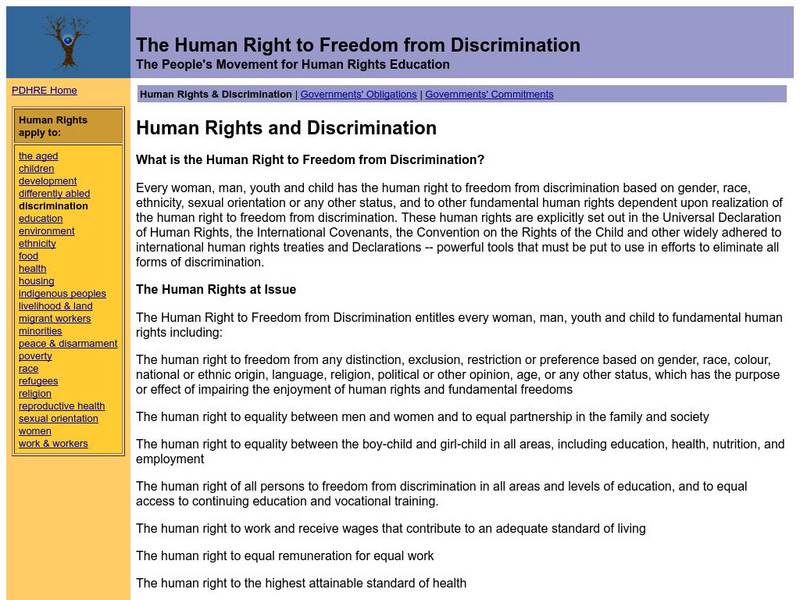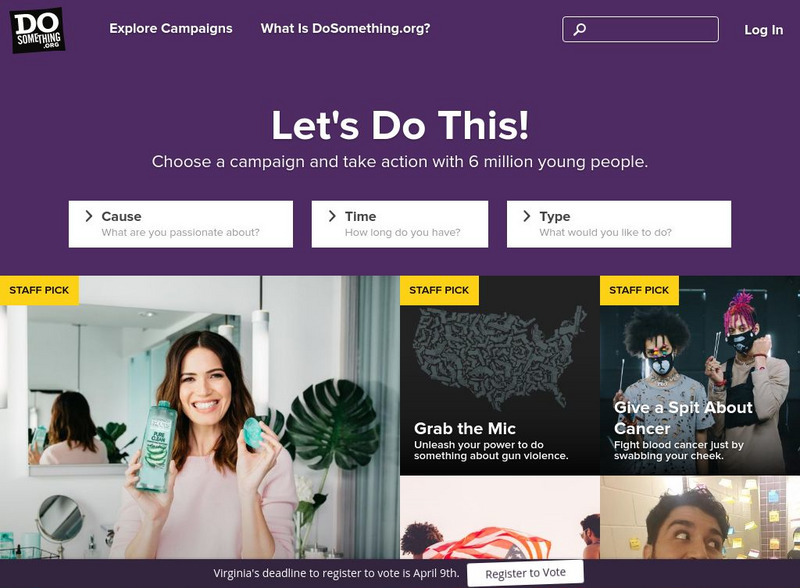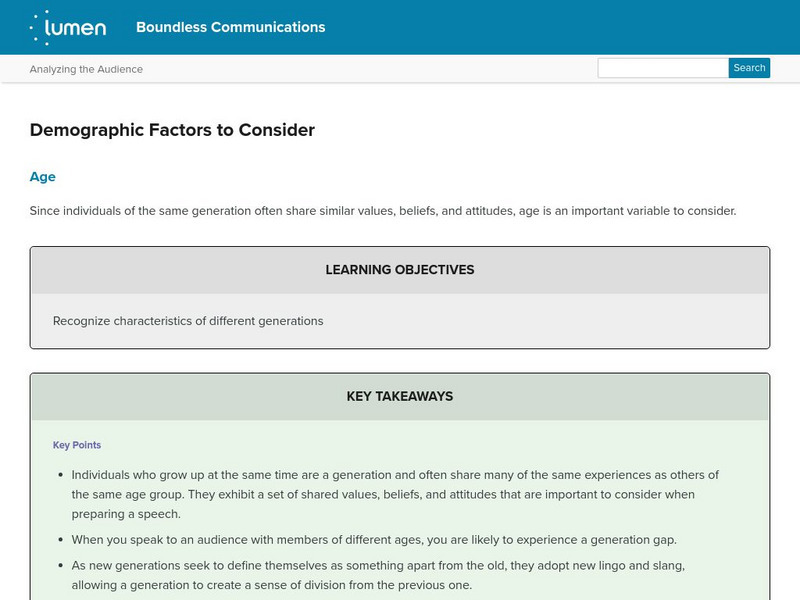Media Smarts
First Person
High schoolers explore the relationship between video games and actual population. Example: A 2005 study showed Latino youth play at higher rates than other groups, but there are no Latino playable characters. They watch a brief video...
Curated OER
Social Studies: Effects of Name-Calling
Students examine name-calling issues by reading stories, essays and poems. After reading the selections, they discuss the problems and effects of name-calling and bullying. In groups, they present summaries of the materials read. ...
Curated OER
Sexual Orientation Myths
Young scholars identify personal and cultural values and opinions related to dating and sex. They explore options for sexual expression, including abstinence, and identify sexual boundaries that are personally appropriate and relevant to...
PBS
Pbs Learning Media: Era and Political Backlash
In this lesson, students analyze the text of the Equal Rights Amendment, trace the amendment process taken to get the ERA passed, analyze the reasons for opposition to ERA, and the methods used to stop its ratification. Then they will...
ProCon.org
Pro Con: Born Gay? Is Sexual Orientation Determined at Birth?
Website presents research, commentary, timeline, and pro con argument on sexual orientation and whether it is determined by nature or through nurture.
Other
The Human Right to Freedom From Discrimination
This site discusses the "human right to freedom from any distinction, exclusion, restriction or preference based on gender, race, color, national or ethnic origin, language, religion, political or other opinion, age, or any other status,...
Other
Do something.org
Do Something is a nationwide network of young people who know they can make a difference in their communities and take action to change the world around them. As part of Do Something, young people are asked what they want to do to make...
American Psychological Association
Apa: Questions About Sexual Orientation [Pdf]
This resource that fosters understanding of what sexual orientation is and how people can understand their orientation. PDF (requires Adobe Reader).
Lumen Learning
Lumen: Boundless Communications: Demographic Factors to Consider
This lesson plan focuses on demographic factors to consider when analyzing your audience including age, generations, gender, sexual orientation, culture, ethnicity, and race, education, religion, and group member.








